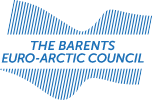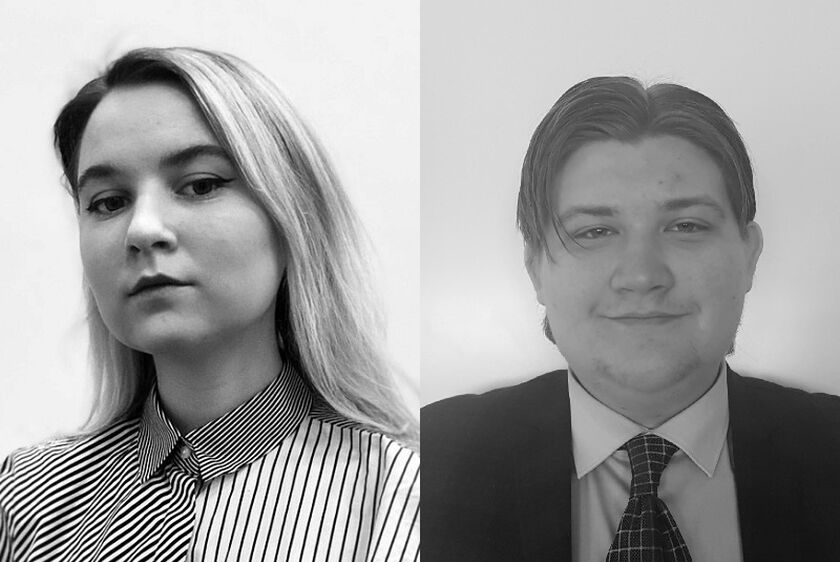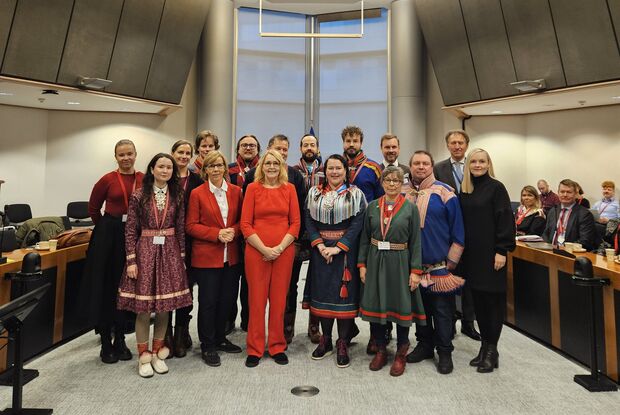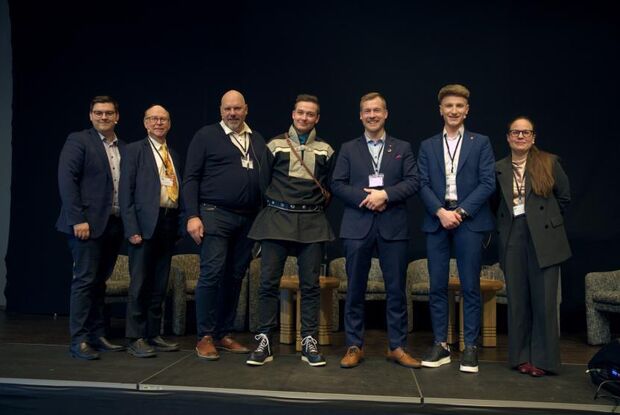Many things in common
For Daria it’s the warmth, vibrance and opportunities that describes best the Barents region. “We live in such a harsh environment, which creates unique human connections. This is the main driver, because we are all very inquisitive, we aspire and want to build a nice relationship with all our neighbours as well as our tricky nature. Cooperation is needed to avoid stagnation”.
For Martin, the Barents Cooperation has been a unique and forward-thinking initiative as all member countries have many things in common like nature, environment and some political issues for example “brain drain”. “Through cooperation we can improve those common challenges together and hopefully along the way develop friendships and deepen our cooperation.”
Both have been involved in the Barents Cooperation for some time. Daria obtained many friends in the Norwegian-Russian school in Murmansk. Thanks to the Barents Cooperation, contacts through cultural co-operation, have brought so many people together and showed that there is always something to discuss and to produce! “One can say that in a way the Barents Cooperation even defined my future”.
Martin has been a part of many Barents Cooperation projects and experienced many things which he would not otherwise have done. This helped him to grow as a person and being grateful for the friendships that he developed throughout his journey in the Barents Cooperation.
Optimistic about the future
Daria is very satisfied with the work of the Working Groups in the Barents Cooperation, but mostly impressed by the achievements of the Hotspot Exclusion Programme. Kola Peninsula became much safer and cleaner. “I believe keeping the north peaceful and attractive is the most important factor for us now. The fact that people-to-people cooperation has contributed to peace for 28 years, says a lot about the success of the cooperation”.
For Martin, the main achievement is that it has been possible to operate using open diplomatic channels for such a long time. “There is always room at the table to discuss issues, that people share together. The biggest achievement is that we are breaking down barriers between people in ways that was not possible before 1993.” He affirms that the closer one gets to the Russian border, the more friendly intonation people have when talking about the Russians, because they have actually experienced them.
Both believe that the work will continue, and it will grow in the future, when the new generation takes over and expand the Barents project even further, learning from people who were there from the start and understanding what the next step would be. The potential in this cooperation is massive and the future looks very bright. Both are hopeful that in 20 years young people will be able to travel, study, work, open businesses, exchange opinions freely – all for the sake of the sustainable future of the Arctic.
Daria and Martin believe that to overcome the negative impact of the pandemic on the cross-border cooperation we should do everything in order to continue the dialogue and help each other to recover. A gradual opening policy with well negotiated diplomatic steps and discussion of our common goals and areas of focus will slowly dissolve the impact of the pandemic. It is important that we keep the continuity of our cooperation, even though we might not be able to visit each other and share a cup of coffee in Murmansk, Arkhangelsk or Tromsoe. I look very much forward to the first opportunity which will come when the foreign ministers meet in Tromsoe 26 October this year.
The concrete measure to tackle the pandemic is to get people vaccinated. “We have made a remarkable success in the Barents region, to be able to change and innovate for the better. Currently we have only the digital platform to cooperate but hopefully - once the pandemic is resolved - we will also return to people-to-people cooperation alongside digital pathways of communication” - says Martin.
Concrete results achieved through project co-operation
In 2018 the Barents Regional Youth Council (BRYC) became formally a part of the Barents Cooperation structure, as a regional working group, supported by all 14 Barents regions. The BRYC Chairs are incredibly thankful to both the regions and the member states for strengthening the Barents Regional Youth Council. It has contributed to building a culture of including young people in every stage of decision-making processes.
Thanks to financial contributions from the regions, the BRYC has expanded their project activity obtaining concrete results in areas such as employment, innovation, health and culture. Projects related to sexual health, gender equality and the role of women in the development of the Barents region and many annual events, that were devoted to environmental issues, integration of young people in the society, academic and professional development took place in many locations in the region.
The main goal was to gather ambitious young people so they could exchange their opinions on these topics, and they always succeeded. All the information that was gathered was provided to decision-makers on a higher level via the Youth Recommendations that Sweden initiated in 2019.
Alerting challenges and way forward
In view of the BRYC Co-Chairs, one of the most challenging issue is the depopulation of the Barents Region. It forms a “brain drain”, which means that young people are leaving the region. Why is this happening? In 2017 there were about half a million of young people less in the Barents Region compared to 1997. To change this, we need to be optimistic about the future and highlight the opportunities that exists in the region. There is an immense number of opportunities and potential.
Daria and Martin believe, that to make young people stay in the region, the most important thing one can do is to give them ownership of their own home. If young people are part of the decision-making process and can change their home or improve it, they would be proud of what they were able to achieve. This would result in a wish to stay there and continue to make their home a better place. With positive memories from their childhood young people will have a bigger chance of returning back home and convey those positive experiences to their children. They trust that Barents has much more to give in terms of innovation and sustainability, not yet discovered.









